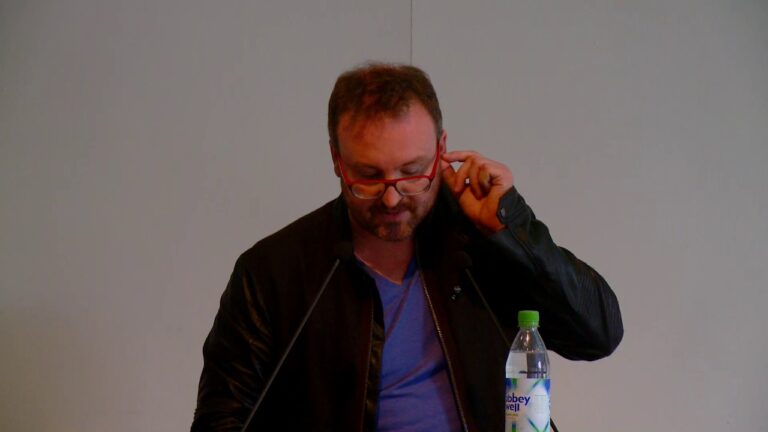
Lecture Date : 2017-04-25
There is a deep and dynamic relationship between the evolutionary pathways of computers and humans, each influencing and helping to configure the other. Yet while machines are getting lighter, faster, easier to use, performing ever better at ever lower costs. The same cannot be said of the human, which has not kept up with the raging pace of development of the machine. The human body however is capable of performing certain kinds of computational tasks. Taking the body as the starting point of our design praxis, it is possible to ideate novel ways of interaction.
Luis Rodil-Fernández is an artist, researcher, teacher and hacker who taught himself computer programming by cracking computer games as a child. He studied Computer Science but dropped out to work as a software developer while living in the UK and The Netherlands. He earned a BA with Honours at the Rietveld Academy in Amsterdam and a Masters in Music from the Royal Conservatory in The Hague, and is currently teaching Critical Design at the Interaction Design department of the ArtEZ University of the Arts in Arnhem, The Netherlands.
His work is concerned with the impact that technologies have on cognition and the human body and has been exhibited internationally. Through performances, installations and social games, he pursues a critical approach to human-computer interaction, as well as the ways in which humans communicate with other humans through technology. He sees these relationships ranging from the co-evolutionary to the fetishistic, and the ways in which the human and machinic configure each other as an important aspect of contemporary culture.
source